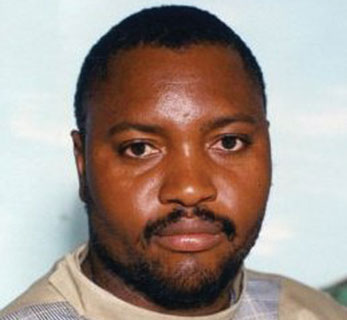
ZIMBABWEANS who are desperate for positive change at the executive level may be praying that history repeats itself so they can be delivered from State terrorism.
Many tormented souls are probably psyching themselves up to the welcome prospects of the cyclic and repetitive nature of history.
The depraved and sadistic ones may be wishing any repeat of history should portend the re-emergence of Gukurahundi genocide and the revisitation of the socioeconomic turmoil of 2008 upon the already suffering people.
This is about the beckoning ideological salvation of the people.
Zimbabwe may be destined for better days, thanks to the Soviet Union-style events that are brewing fast and furiously in the local political horizon.
Zimbabwe may be set on a path of redeeming herself from the failures of Robert Mugabe’s adulterated socialist principles.
Forthcoming events may compel Zimbabwe to embrace political and economic transformations such as the former Soviet Union and the Communist Republic of China went through.
The former USSR and China are renowned for having redeemed themselves from the operational failures of a weird ideological concoction of Communism, Marxism-Leninism, Socialism, Stalinism, Dictatorship by the Proletarian and Maoism. The two countries have made capitalist-oriented economic strides in an atmosphere garnished with a false faĆade of communist rhetoric.
- Chamisa under fire over US$120K donation
- Mavhunga puts DeMbare into Chibuku quarterfinals
- Pension funds bet on Cabora Bassa oilfields
- Councils defy govt fire tender directive
Keep Reading
To her credit, Russia evolved from a USSR that used to take pride in being a country of unmotivated collectives to a land teaming with billionaires in a short space of time spanning from Leonid Brezhnev to Michail Gorbachev.
Brezhnev, a survivor of Stalin’s Great Purge of 1937 to 1939, was like Mugabe in that both presided over the economic stagnation of their respective states due to an acute lack a requisite sense of economic reforms.
It is the comparative economic ineptitude of the two leaders that bring about a sense of déjà vu where Brezhnev provides the antecedent or precursor.
Brezhnev died in 1982 and was succeeded by 68-year old Yuri Andropov, then head of the KGB. Andropov died just over a year of taking office and was succeeded by Konstantin Chernenko, age 73. Chernenko lasted a mere thirteen months at the helm.
The successive deaths of three Soviet presidents led to the ascension to power of the 54-year-old Michail Gorbachev. Gorbachev preached Glasnost (openness) and embraced Perestroika (restructuring).
Gorbachev’s liberal policies led to the fragmentation of the USSR and the end of a dangerous cold-war era. As a visionary, Gorbachev promoted reforms that precipitated the dissolution of the USSR, the fall of the Berlin Wall, the liberalisation of states in the former Warsaw Pact and the stealthly rise of a China as an alternative superpower.
China has sailed from being a cowardly State that used to endure the savagery of Japanese imperial forces into an economic powerhouse.
This has happened in a relatively short space of time covering the time when Chairman Mao Tse Tung took over in 1949 to Xi Jinping’s current tenure. Of course in between were other notable personalities such as Hu Jintao, Jiang Zemin and Hua Guofeng.
Zimbabwe is treading the political paths of authors of her current preferred ideology. The country is set to experience a complex political morphosis similar to the one experienced by her communist mentors.
This assertion is supported by wholesale political purges taking place in the country. In all this complexity, the main precipitant is the fear of death within Mugabe and his close associates of septuagenarians and octogenarians.
Zimbabwe is likely to see successive deaths of members of the top brass in a manner of Soviet presidents from Brezhnev to Chernenko died. Mugabe, often likened to Tyrannosaurus Rex in some circles, is battling health issues related to his twilight years.
He is an older version of Brezhnev, he has presided over a stagnant economy, he is senselessly obstinate and believes in beefing up his defences against imaginary enemies.
Mugabe will certainly go soon due to his ripe age. The 68-old Emmerson Mnangagwa, a man with his roots firmly grounded in covert operations like Yuri Andropov, is primed to take over when the eventuality happens.
Unfortunately Mnangagwa will not last that long in power as history will re-enact the Andropov fate. In the event of Mnangagwa doing an Andropov, a yet-to-be-anointed septuagenarian will take over and will sadly fulfil the Chernenko prophecy by not lasting over a year in power.
When Mugabe is gone, suffering will be gone, the siege mentality will be gone and terror and tyranny will be gone. Only when Mugabe’s number is up will the people of Zimbabweans begin to experience unfettered freedom and economic well-being.
Masola waDabudabu is a social commentator










